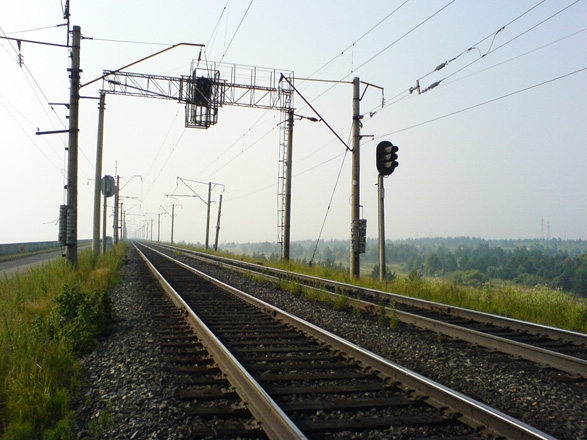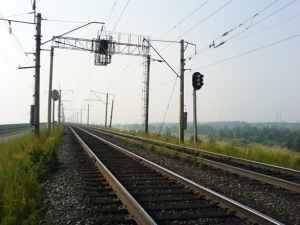Customs Control at BTK Railway to be Simplified
Turkish Minister for Trade and Customs, Cenap Ascı, told Trend News Agency that the customs procedure on the Baku-Tbilisi-Kars (BTK) railway will be made easier.
According to Trend, the Turkish Minister said, "we will mutually exchange the information on cargo,” adding that “the customs control results of one side will be recognized by the other side. We do not plan to replace the carriages and unload the supplied goods under the customs control procedure. This will significantly speed up the process of control."
Reportedly, Ascı also discussed the passport control procedure of future passengers of the BTK railway and said it is possible to simplify this procedure in the future. "Initially, the passport control procedure will be carried out at the border crossings,” Asci emphasized.
According to the Minister, the passport control procedure will become more streamlined. “In the future it is possible to conduct the passport control procedure in the arrival and departure points. But it is important for the relevant bodies of the two countries to agree on mutual recognition of the passport control results."
The Turkish Minister stressed, that the main objective is to simplify the cargo transportation via BTK.
"Thanks to this project we will be able to transport cargo from Asia to Europe and vice versa,” Asci said. “Therefore, it is important to simplify the customs procedures. But we will take measures to simplify the passport control procedures for passengers as well."
The BTK railway is constructed as a result of the Georgian-Azerbaijani-Turkish Intergovernmental Agreement. The State Oil Fund of the Republic of Azerbaijan (SOFAZ), finances the project in accordance with the Azerbaijani president’s decree on the implementation of the BTK project activities, dated February 21st, 2007. SOFAZ has allocated two loans totaling $775 million for the construction of the Georgian section.
A new 105 kilometer stretch of railroad is currently under construction as part of the project. The Akhalkalaki-Marabda-Tbilisi part is also being restored, increasing its capacity to 15 million metric tons of cargo per year. A depot is under construction in Akhalkalaki, to transfer trains from the existing Georgian railway to the new European tracks.
The report says the peak capacity of the corridor will be 17 million metric tons of cargo per year. “At the initial stage, this figure will be equal to one million passengers and 6.5 million metric tons of cargo.” the report states.











